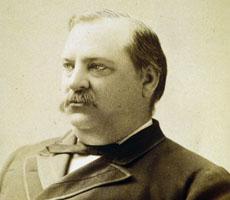When mere rhetoric was for sissies
By Wes Pruden
PrudenPolitics.com
We’re
almost there. Barack Obama and Mitt Romney have
inflicted maximum damage on each other. Campaign
wise men have slipped into the pooh-pooh mode,
pooh-poohing the other side’s claims of good news.
The dainty and delicate, afraid of the sight of
blood, can relax, have a cookie and sip a nice cuppa
tea (herbal recommended).
As
American campaigns go, this one has been lively but
not particularly vicious, unless you’re Mitt Romney
and accused of dooming. He was accused of dooming
one woman to death by cancer, and plotting to doom a
young unmarried law student to birthing lots of
babies by cutting off her supply of government
condoms. It was never clear how many she needed, or
how often.
That’s the sweetness of campaigns: politicians never
have to be very clear. If you can work murder or sex
into an accusation, it becomes believable, and if
you can work both into the narrative, you can count
on it going “viral” and a lot of people will see and
hear it, and, best of all, repeat it.
The
campaign was painful to President Obama, who slept
through the first debate -- and when he woke up, he
looked like he had banged his head on the rafters in
the rarified places where presidents live. Messiahs,
even minor-league messiahs from the south side of
Chicago, usually don’t have to explain themselves.
He dreams dreams of sugar plums and Big Bird, and if
he has nightmares about the great betrayal of his
ambassador in Benghazi, there’s always someone
around him to say it never happened. He can (and
probably will) blame George W. Bush.
Still, the dainty and the delicate got off easy this
time. Joe Biden saying dopey things is welcome comic
relief, as in telling a rally last week that
“there’s never been a day in the last four years
I’ve been proud to be his vice president, not one
single day.” Everyone is groggy now and we should
cut Joe a little slack, and anyway, he’s not a patch
on some of the vice presidents of the past. When
John Adams was George Washington’s vice president,
he and Thomas Jefferson once went after each other
with fireplace tongs. In those more robust days,
mere rhetoric was for sissies.
David
McCullough, the masterful presidential historian
(“John Adams” and “Truman”), thinks the charge and
countercharge in the campaign of 1800 might have
been the standard for mudslinging. Jefferson paid a
journalist to write that Adams was a mentally
unbalanced hermaphrodite, and Adams spread the word
that if Jefferson won there would be murder, rape
and robbery in the streets. Jefferson won, but Adams
was right. Two centuries later, we’ve got murder,
rape and robbery in lots of streets. (You could
fact-check it.)
Connoisseurs of the rough stuff are particularly
fond of the campaign of 1828. Andrew Jackson’s
surrogates accused John Quincy Adams of wearing silk
underwear and pimping for the czar of Russia. The
Adams campaign responded by calling Jackson’s wife
Rachel a whore because she married Old Hickory
before she got word that divorce from her first
husband was final.
Grover Cleveland was the only Democratic president
between the Civil War and the end of the 19th
century, admired for his stern Presbyterian
rectitude, strong against corruption. But like ol’
Bubba, he had an eye for the ladies. In the campaign
of 1884, the Republicans discovered that he had
fathered a child before he shuffled off from
Buffalo, where he was the mayor. He admitted that he
had paid child support to the child’s mother, though
later it turned out that he admitted paternity
because he was the only bachelor among several of
the lady’s “good and dear friends.” A preacher’s
son, he was a true gallant.
The
Republican gaffe patrol (on patrol in balloons in
those days) raised the most famous mocking chant in
presidential politics: “Ma, Ma, where’s my pa?” When
the votes were counted and Cleveland had defeated
James G. Blaine, “the continental liar from the
state of Maine,” the triumphant Democrats shouted
their answer: “Gone to the White House, ha, ha, ha.”

President Grover Cleveland
The
cleverest thing a president could think to say about
his opponent this year was that Mitt couldn’t tell
the difference between a battleship and a bayonet,
or that he wants to kill that big imaginary bird.
But in the days of yore, the pols were sometimes
poets. All we have now are pollsters, pundits and
campaign consultants.
Well, it’s time to vote, go home and shut up.
Further disturbing the peace should be a felony.
Wesley Pruden is editor emeritus of The Washington
Times.

